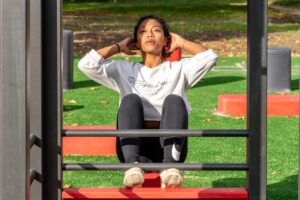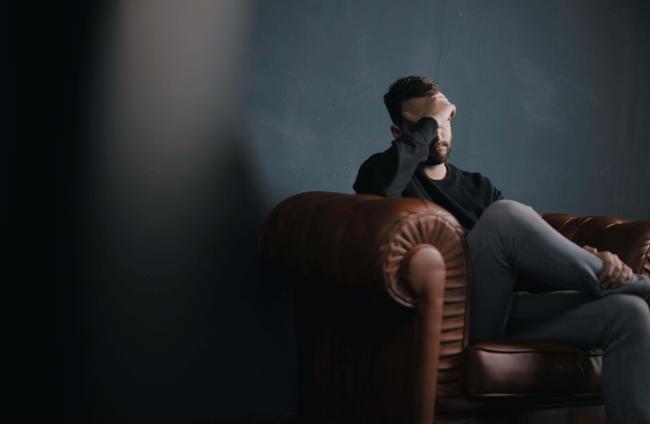Stress and anxiety are common for people to experience in today’s fast world. However, people with clinical anxiety disorder NEED to see a therapist. This article is to help people who experience occasional non-clinical anxiety and stress. Unchecked anxiety may affect your life quality negatively. It is important to take control of stress and anxiety. The following 10 tips may help to reduce anxiety.
Exercise To Reduce Anxiety

Exercise is a necessity. Both for people with or without anxiety. It can help a lot in combating stress and anxiety. People who exercise regularly are less prone to experience anxiety compared to those who do not. Exercising lowers the stress hormones like cortisol. It helps in the release of endorphins which act as natural painkillers. Exercising also improves your quality of sleep and gives you a confidence boost. You can start with 10 minutes of Yoga daily.
Reduce Caffeine Intake to Reduce Anxiety

It is found that high doses of caffeine can increase anxiety. Different people have different tolerance for caffeine. If you find that caffeine is making you anxious, try cutting back on it. However, in many studies, coffee in moderation can be healthy. But it is not for everyone.
Learn To say NO

You can not control everything. But you should and you must try to control the stressors that are within your control. Taking on more than you can handle and juggling a lot of responsibilities may overwhelm you. Learn to say “no” more often and you will notice that you are feeling way more relaxed than you used to.
Avoid Procrastination

Another way to reduce your anxiety is to stay on top of your game and stop procrastinating. Procrastination leads you to react instead of respond, leaving you scrambling to catch up. This can cause stress and anxiety, which negatively affects your health and sleep quality. Get in a habit to make a to-do list in order of priority. To-do lists clears your mind and set your goals straight. It sets realistic deadlines. You can also maintain a bullet journal. Work on the things that need to be completed first. Once you get in the habit, you will not have pending tasks and will not feel anxious about approaching deadlines.
Practice Mindfulness

Mindfulness describes practices that make you aware of the present moment. It can help resist the effects of anxiety such as negative thinking. There are several methods that you can use to increase mindfulness, including cognitive therapy, stress reduction, yoga and meditation. A recent study among college students suggested that mindfulness may help increase self-esteem, which in turn lessens symptoms of anxiety and depression.
Take A Deep Breath

Stress and anxiety trigger your sympathetic nervous system, and your body slips into “fight-or-flight” mode. The nervous system releases stress hormones during this. One experiences physical symptoms such as faster heartbeat, quick breathing, etc. Deep breaths can help in activating your parasympathetic nervous system. It controls the response of relaxation. Deep breathing also brings your attention to the moment. It makes you aware of your breath and makes it slower and deeper. Deep breathing expands your lungs fully and rises your belly. This slows your increased heart rate and you feel more peaceful.
Listen to Soothing Music

Music is known to have effects on people that are unexplainable. Listening to music can relax your stressed body. For instance, slow-paced instrumental music can induce the relaxation response by helping lower blood pressure and heart rate as well as stress hormones. Classical, Native American and Indian music can be particularly soothing. But listening to the kind of music that you enjoy is effective too. The aim is to have a relaxing sensation. Furthermore, nature sounds can also be very calming. This is the reason that they’re often incorporated into relaxation and meditation music. There are many ASMR (Autonomous Sensory Meridian Response) videos on YouTube that people have found relaxing.
Quit Smoking To Reduce Anxiety

When stressed, people often reach for a cigarette. Yet, like drinking alcohol, it is a quick fix that may worsen your anxiety over time. Research has shown that the people who start smoking earlier in life have a higher risk of developing an anxiety disorder. Research also suggests nicotine and other chemicals in cigarette smoke alter pathways in the brain linked to anxiety.
Eat A Healthy Diet

Low blood sugar levels, dehydration, or chemicals in processed foods such as artificial flavourings, artificial colourings, and preservatives may cause mood changes in some people. A diet high in processed sugar and carbohydrates affect mood and causes mood swings. If you notice that anxiety worsens after eating, check your eating habits. Drink plenty of water, avoid processed and packaged foods. Try to eat a healthy diet rich in complex carbohydrates, fruits and vegetables.
Drink chamomile tea to Reduce Anxiety

A common home remedy to reduce anxiety is a cup of chamomile tea. It calms your nerves and promotes sleep. A 2009 study showed that chamomile may also be a powerful associate against generalized anxiety disorder. The study showed that people who took German chamomile capsules (220 milligrams up to five times daily) had a greater reduction in scores for tests that measure anxiety symptoms than those who were given a placebo.
Also check the: 10 Ways To Cope With Lockdown In India

2 thoughts on “10 TIPS TO REDUCE ANXIETY I 10 TIPS”